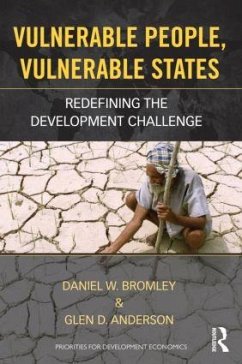
People, Place and Global Order
Foundations of a Networked Political Economy
Versandkostenfrei!
Versandfertig in 1-2 Wochen
66,99 €
inkl. MwSt.
Weitere Ausgaben:

PAYBACK Punkte
33 °P sammeln!
Using deliberately accessible language for students and the general reader, the authors draw upon socially innovative models of economic organisation from the nineteenth century to present a model to master the networked economy for the common good.














